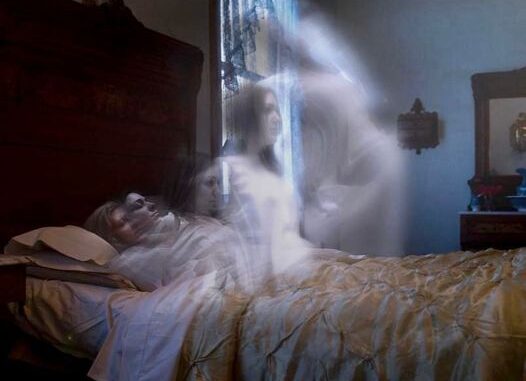
Every person experiences the pain of losing a loved one at some point in their lives.
But, the loss of a particular loved one can have a greater impact on us than we anticipate.
Have you ever, for instance, dreamt about a person who is no longer living? You may not have given any thought to the significance of their appearance in your dreams.
Everyone grieves differently after the loss of a loved one. Many people cry their hearts out, while others go silent and withdraw inward.

Some people act as if nothing has happened or try to avoid thinking about it. Nonetheless, many people share the practice of remembering departed loved ones in their dreams.
The subconscious decides what we dream about at night, and if you’ve ever dreamed about a dead person, it could imply something.

So, can dead people communicate with us in our dreams?
Visitation dreams are what people have when they have visions of the deceased, according to Patrick McNamara, associate professor of neurology and psychiatry at the Boston University School.
“Dreams of the bereaved where the dead appear to the bereaved in dreams and look to be very much alive,” as McNamara puts it.
The 67-year-old neuroscientist blogs often under the name Dream Catcher on the website Psychology Today.
McNamara has written extensively about dreams and their interpretation. And he claims there’s generally a rational explanation for visitation dreams.
They aid in the process of healing from emotional trauma.
He writes about a dream he had after the death of his parents. McNamara argued that this type of dream, known as a “visitation dream,” was evidence of survival after physical death after having one himself
“Now if I, an individual who studied dreams with a skeptical scientific cast of mind, could not shake the conviction that I had just communicated with my dead parents, how much stronger must be the conviction of someone with a less skeptical approach to dreams than me?,” McNamara writes.
There are more people than just Patrick McNamara who are curious about dreams like these, and a number of studies have been conducted to learn more about them.
A study analyzing the effects of mourning dreams was published in 2014 in the American Journal of Hospice and Palliative Care.
“Dreams of the deceased occur frequently, can be highly meaningful and further healing from a loss.” the study concluded.
Themes in the dreams included “past memories or experiences, the deceased free of illness, memories of the deceased’s illness or time of death, the deceased in the afterlife appearing healthy, comfortable and at peace as well as the deceased communicating a message.”
In 2016, a group of Canadian researchers examined the dreams of 76 middle-aged people who had just experienced a significant loss.
Leave a Reply